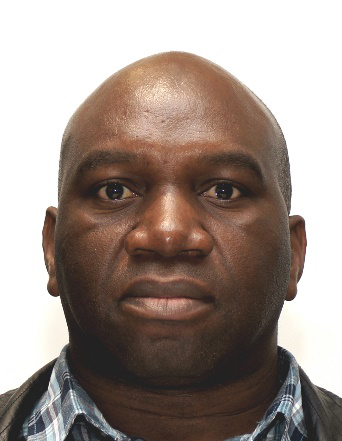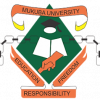
DR HAKACHITE
ABOUT THE SCHOOL OF APPLIED SCIENCE AND TECHNOLOGY
The School of Applied Sciences and Technology was established in 2014, initially as the school of Home Science to offer degree in Food and Nutrition (Major)/ Home Management (Minor) and Clothing and Textile Science (Major)/Home Management (Minor). It was changed to the school of Applied Sciences and technology in 2019. Before 2014, during it was the department of Home economics. In 2015 the first Home Science students were enrolled. The school offers high quality entrepreneur skills and knowledge in the fields of Nutritional and Textile Sciences to the public. The school exempts students with a background (Diploma in Secondary teaching) of Home Economics from public colleges from the first year courses.
ACADEMIC STAFF
Master of Science (Nutrition Sciences) – The Pamodzi University, Lusaka, Zambia,
Thesis: Challenges of Teaching Fashion and Fabrics in Senior Secondary Schools: A Case of Selected Schools on The Copperbelt Of Zambia.
- Bachelor’s Degree of Education – The University of Zambia, Lusaka, Zambia
- Diploma in Education (Home Economics) – The University of Zambia, Lusaka, Zambia (COSETCO) Kitwe, Zambia.
- Zambia Basic Education Course (ZBEC) – The University of Zambia, Mufulira Teacher Training College, Mufulira, Zambia (MTTC).
Professional employment and experience
- From 1996 to 1998 I participated in marking Grade 9 Theory Exam Papers. From 1998 to 2000 I used to examine and Mark Grade 12 Practicals in Mufulira, Copperbelt. In 2004 I participated in Diploma Home Economics syllabus review from a 2-year programme to a 3-year programme. From 2010 – 2014 I coordinated ODL Student Affairs at Mukuba University. In 2014 coordinated the commencement of Nutritional and Textile Sciences programmes, also formation of Applied Science and Technology Degree curriculum. In 2015 I was invited to participate in formulation and validation of Junior Secondary Teacher’s Diploma Curriculum by the Ministry of Education, Zambia. From 2016 to date, I have been a consultant and moderator of Home Economics Diploma Programme at Zambia Institute Business Studies and Industrial Practice (ZIBSIP). In the same year I participated in the writing of Comprehensive Sexuality Education module organised by UNESCO.
- In 2016/2017 I participated in the writing of Mukuba University Strategic Plan.
Academic Qualifications
- I attained MSc in Food and Nutrition Sciences in 2017 from the School of Home Economics Post Graduate Studies-Faculty of Science and Technology, Pamodzi University, Lusaka, Zambia.
I researched on “Effect of Malnutrition on Children’ Academic Performance at Lower Grades: Case of Selected Schools in Mufulira, Copperbelt, Zambia.
- Besides, I achieved another MME in 2014, from the School of Management in Education, Maastricht University, CINOP, Netherlands.
My research was on Human Resource Management for Continuous Professional Development in Selected Higher Learning Institution of Zambia.
- My B.Ed in Home Economics was obtained in 2010 from the School of in-service and Advisory services, University of Zambia, Lusaka, Zambia.
- My Secondary Teachers Diploma was attained in 1989, Department of Home Economics, University of Zambia, Lusaka.
Research Interests
Maternal and Child Nutrition
Teaching Curriculum and Methods
(Future Researches)
- Challenges of the Applied Science and Technology Curriculum on Delivery of Science Related topics.
- Making Egg shell calcium edible in Zambia.
- The Use of ‘Insonko’ as a remedy for HBP and its effects on Health.
- Adherence to Reference Daily Intakes RDIs).
- Benefits of Using Traditional Cooking Soda compared to Commercial Cooking Soda.
Academic Qualifications:
- MSc Food Technology –Moscow State University of Food Production (2011), RUSSIA.
- BSc Food Technology-Moscow State University of Food Production (2009), RUSSIA.
Peter Mundia Hachangu joined the university as a lecturer class Ⅲ in March, 2020.Prio to engagement at the Mukuba University, he worked in the food processing industry as a shift coordinator under the production department at Parmalat Zambia limited a leading dairy and fruit beverages manufacturer from 2011-2012.He later moved in 2013 to regulatory and compliance monitoring under the department of Import Quality Monitoring of the Zambia Bureau of Standards (ZABS) as a quality and food safety assurance Inspector. Here he inspected food imports at border entry points ensuring compliance to applicable standards.
In 2015, he moved to the Domestic Quality Monitoring Scheme under ZABS where he inspected local food processing companies enforcing quality and food safety standards under the bureau’s mandate. He worked in the Northern Province as Provincial inspector under the newly formed Zambia Compulsory Standards Agency (ZCSA) enforcing compulsory standards through implementation of quality and food safety assurance schemes in the local food industry.
In line with the core functions of the University, he undertakes the roles of teaching, research and provision of community services.
Research Interests
–Food fortification
-Nutraceuticals/Functional foods
-Food safety and quality assurance
-Post harvest technologies
Elizabeth Musonda was appointed as a full-time lecturer to Mukuba University in January, 2020. Before her appointment, she worked as a teacher and Head of Department-Practical Subjects at Malambwa Secondary School in Mpika District. At this school, her responsibilities were teaching pupils and supervising teachers of Home Economics. Additionally, she worked as a part-time lecturer of Food and Nutrition at Trinity Zambia College of Education. Furthermore, she served as a senior teacher in various schools before becoming a secondary school teacher. All in all, Elizabeth Musonda possesses professional experience both as a teacher and a lecturer for a period of 15 years
Research interests;
Concerning the core business of the university, she undertakes the roles of teaching and research. Research interest is in the areas of Maternal Nutrition and Infant and Young Child Feeding.
Professional Qualifications
- Food, Nutrition and Dietetics, Kenyatta University, Kenya.
- Ed. Family and Consumer Sciences, Rusangu University, Zambia.
- Primary Teacher’s Education, Kasama College of Education.
RATIONALE
The Bachelor of Education in Nutritional Science programme intends to inspire the nation to economic prosperity due to the government policy which emphasises on self-sustenance and entrepreneurial skills. This is also in line with the 2030 United Nations Sustainable Development Goal 4, on Quality Education (UN, 2030). The main purpose is to ‘ensure inclusive and equitable quality education and promote lifelong learning opportunities for all’. Community capacity building and increasing nutrition awareness at household and community levels are seen as central to the establishment of local capacities to prevent and combat malnutrition. This program will give knowledge and skills to students to serve the nation at household and community levels.
- The Nutritional Science programme aims at developing a clear and practical understanding of the students’ responsibilities to their pupils, schools, local communities and the nation at large.
- The students will acquire an acceptable social attitude, good work habits and the ability to adapt and relate their knowledge to a changing Zambian and global environment in a scientific manner.
- It is intended to broaden the scope of the students to deliver the subject effectively pre- service and in-service teachers at a higher level so as to build on the strong foundation which the university already has.
At the end of the programme graduates are expected to;
- Be equipped with appropriate professional knowledge, skills, values, and attitudes to enable them perform effectively.
(b) Display an understanding and demonstrates an appropriate knowledge and skills in Nutrition Science.
(c) Demonstrate entrepreneurial skills intended to improve quality of life for individuals, families and communities.
(d) Demonstrate knowledge and ability to analyse nutrients, digestion and assimilation of food.
(e) Exhibit knowledge and ability to analyse the role of microorganisms in food production and preservation.
Healthy people; food secure communities that have a sense of wellbeing derived from clothing and textile fashion and design,entrepreneurship and production.
To prepare students who will demonstrate knowledge and skills intended to improve quality of life for individuals, families and communities. To produce graduates with enhanced practical skills in nutrition and textiles for the education sector and industry.
To prepare students for professional leadership as they progress through their career paths
To train a holistic individual who can apply knowledge and skills effectively and utilise local food sources
To provide an environment which supports interdisciplinary and collaborative research for faculty and students.
Produce graduates that demonstrate entrepreneurial knowledge and skills for wellbeing of individuals, families and communities
To offer opportunities to undergraduate and graduate students to conduct research and apply critical thinking through research and publications of research findings
To provide a sound knowledge base related to the study of nutritional and textile sciences and opportunities to develop critical thinking skills
To share expertise, which contributes to the nutritional health and well-being of society
To a carder of competent graduates to conduct assessment professionally
FACILITIES FOR PROGRAM DELIVERY
The Nutritional Science department has adequate facilities in terms of lecture rooms and laboratory facilities. It has two (2) lecture/Practical rooms with a sitting capacity of around 70 – 100 students and two (2) small rooms with a sitting capacity of around 50 students.

